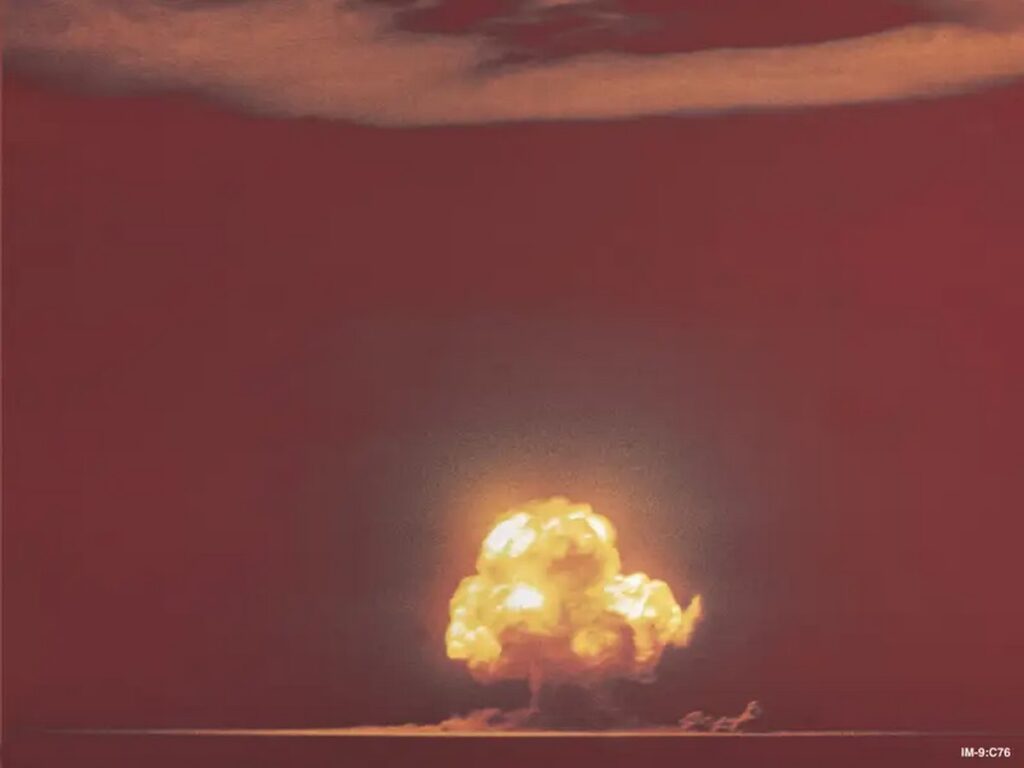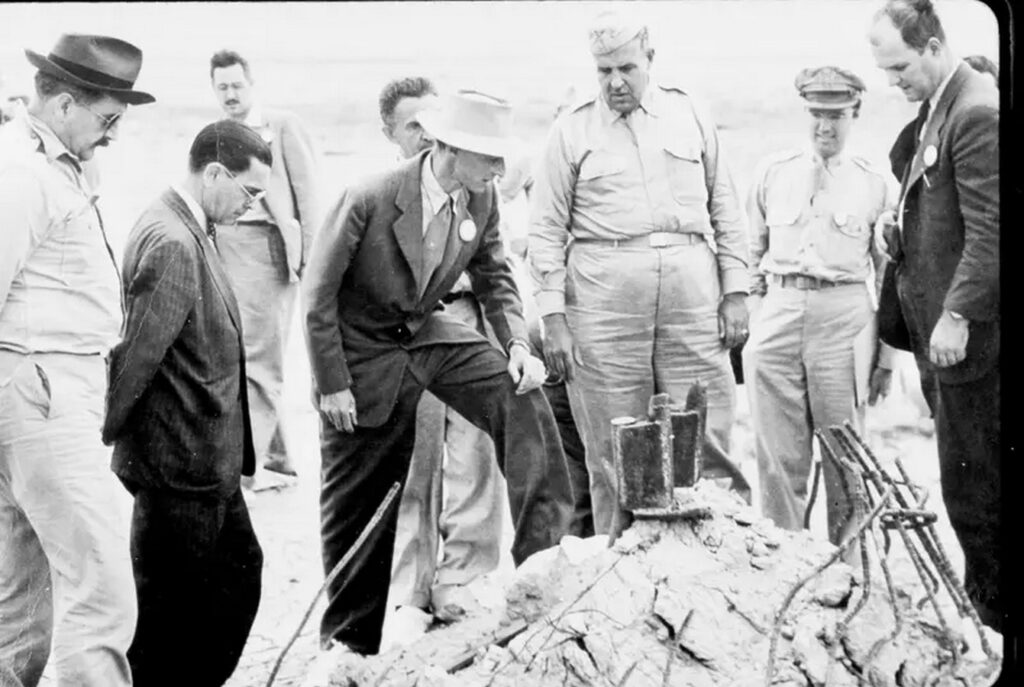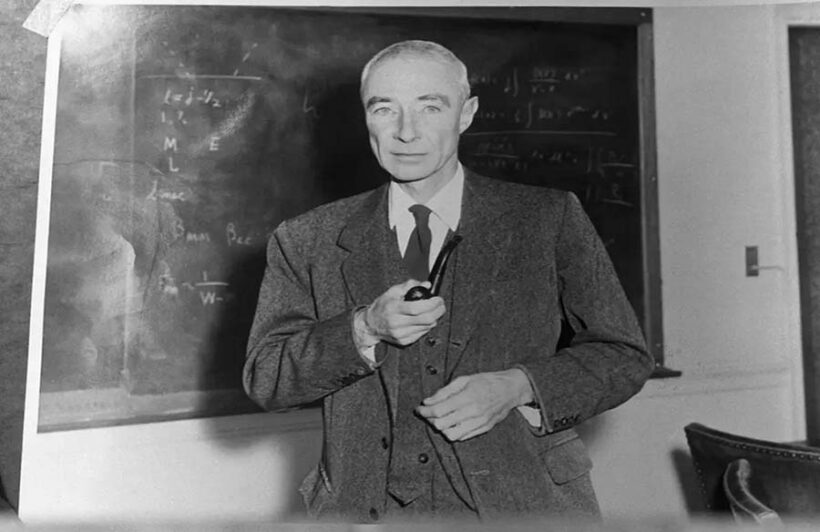The famous quote attributed to J. Robert Oppenheimer, “I am become Death, the destroyer of worlds,” is often linked to his role in the development of the atomic bomb. However, the origins of these ominous words trace back to Hindu scripture, shedding light on Oppenheimer’s contemplation of the bomb’s devastating power.

Context of the Quote
During a 1965 NBC interview reflecting on the Trinity test, Oppenheimer recited the line from the Bhagavad Gita, an ancient Hindu text. This moment captured his somber acknowledgment of the profound impact of nuclear weaponry on humanity.
Oppenheimer’s Role
As the leader of the Manhattan Project, Oppenheimer played a pivotal role in creating the world’s first nuclear weapon. His involvement in this endeavor, aimed at securing victory in World War II, brought about a paradigm shift in warfare and global security.
Spiritual Influence
Oppenheimer’s invocation of Hindu scripture reflects his attempt to grapple with the moral and existential implications of his work. The Bhagavad Gita passage depicts the god Vishnu urging the warrior prince Arjuna to fulfill his duty without attachment to the consequences, a theme resonant with Oppenheimer’s contemplation.

Philosophical Interpretation
The Bhagavad Gita encourages detachment from worldly outcomes and devotion to higher principles. Oppenheimer’s reference to this scripture underscores his internal struggle with the ethical ramifications of unleashing unprecedented destruction.
Historical Reflection
Oppenheimer’s recollection of the Bhagavad Gita highlights the complexity of his perspective on the atomic bomb. While he recognized the necessity of its development to end the war, he also grappled with the immense human cost and the profound moral questions it raised.
Film Adaptation
Christopher Nolan’s “Oppenheimer” explores similar themes of moral responsibility and existential reflection. Through cinematic storytelling, the film delves into Oppenheimer’s internal turmoil and the broader implications of his scientific achievements.
Conclusion
Oppenheimer’s recitation of the Bhagavad Gita serves as a poignant reminder of the moral dilemmas inherent in scientific progress. As humanity continues to grapple with the legacy of the atomic age, Oppenheimer’s introspection offers valuable insights into the complex interplay between science, ethics, and spirituality.












